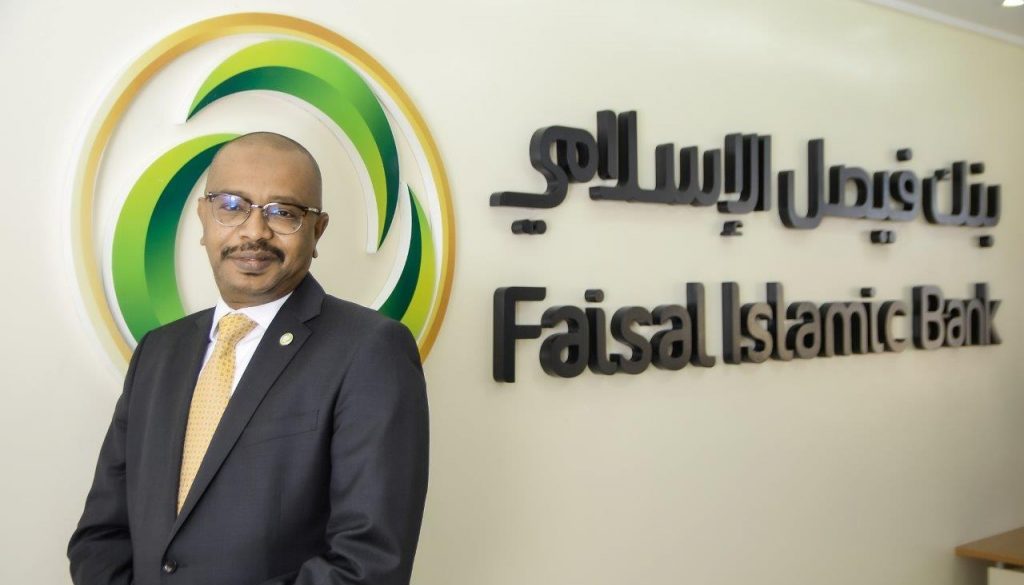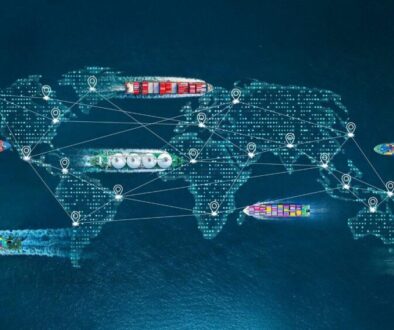Since its establishment in 1978, Faisal Islamic Bank (Sudan) has been the pioneer of Islamic banks in Sudan, providing banking and investment services for its ever-growing customer base. The Bank takes the lead in providing new sophisticated financial products that are Shari’a-compliant.
With a view to further growth in the future, the Bank, which has over 80 branches across Sudan, has recently developed a new strategy in collaboration with Deloitte aiming for provision of unique customer experience by widening the Bank’s customer base and broadening products and services provided.
FIB is also credited for its role in establishing and consolidating the Islamic finance industry across the globe as it is considered the first Islamic bank established in Sudan and among the first established Islamic banks across the world, where the Bank established the world’s first Shari’a Supervisory Board in 1979, and also established the world’s first Islamic insurance company, Islamic Insurance Company LTD, in 1979 which is a fully owned subsidiary.
The FIB new vision reflects the high ambitions of the Bank management to boost its future growth and embracing the slogan ‘To be the best provider of Islamic financial solutions in a contemporary style, by excelling in customer satisfaction, with creativity and innovation driven by the spirit of youth’’, leveraging the Bank mission as a pillar based on which the Bank strives to achieve this vision through ‘’Delivering banking solutions that improve our customers’ and our employees lives, by applying the most recent standards, and developing creative, modern, and Shari’a-compliant banking products’’.
In less than three years under the leadership of Chief Executive Officer, Mr. Moawia Ahmed Elamin, FIB proves to be a prominent bank, in a promising economy such as Sudan.
FIB’s Recent Achievements
The Transformation Program
Faisal Islamic Bank (FIB) has launched its transformation program – “Project Taghyeer” which is aimed at overhauling the entire organization centered on its core values, its customers and employees. The program is in continuation of the new strategy developed by FIB with a redefined vision and long-term objectives.
The transformation exercise focuses on initiatives targeted towards revenue growth, operational efficiency and customer-centricity such as new product launches, organization restructuring and third-party partnerships. Effective change management and communication with the internal and external stakeholders of the Bank have been identified as the key enablers for the transformation. FIB will leverage new-age digital tools and techniques to ensure that transformation is successful, thereby satisfying all its stakeholders’ needs, including customers, employees, regulators, partners and other financial institutions.
Mr. Moawia Ahmed Elamin, CEO of Faisal Islamic Bank, stated that the program is a bold & timely initiative towards the entire transformation of the Bank given the changing customer needs following the pandemic. FIB’s transformation journey will help the Bank drive growth and add value to all the stakeholders of the Bank. With this initiative, the Bank has entered a new era. With active involvement of 1200+ plus workforce of the Bank aided by Deloitte’s proven expertise, they are working to make it a “Model Transformation” in the Sudanese banking sector.
Mrs. Manahil Yousif Maki, CRO of FIB said that the Sudan economy is faced with significant challenges, but they are tackling it one by one. Sudan has been removed from the US list of states sponsors of terrorism; the government is trying to control inflation and currency fluctuations, and the recent act towards the unification of exchange rates constitutes one of those efforts. As a leading bank in Sudan, FIB plays an essential role in shaping economy by offering best in class financial products and services, and takes the lead in rebuilding Sudan’s relationships with international financial institutions”.
The transformation program was strongly supported by the board of directors, senior leadership, and executive employees. This will be a turnaround for FIB and will help the Bank gear up for a transition towards a full-scale universal bank.
MasterCard License
Faisal Islamic Bank is the first Sudanese bank to obtain MasterCard issuing license in collaboration with our business partner Network International.
Faisal Islamic Bank in collaboration with Network International, the leading enabler of digital commerce across Africa and the Middle East, has become the first indigenous Sudanese bank to obtain a card issuing and acquiring license from Mastercard.
Through the Bank’s partnership with Network International, Faisal Islamic Bank will issue Mastercard-branded debit, credit and prepaid payment cards in Sudan for use online, in-store and at ATMs. FIB will also connect local businesses to the Mastercard network using Network International technology, helping people and businesses enjoy more convenient, secure and easy-to-use ways to pay everywhere Mastercard is accepted across the globe.
“We are delighted to partner with Mastercard and Network International on this huge milestone, which will enable the bank’s customers to withdraw funds from ATMs globally, shop online, and transact at millions of merchants around the world that accept Mastercard payment cards. Faisal Islamic Bank is fully committed to broadening and growing the payments landscape in Sudan, which will have a positive impact on the economic growth of our nation. We look forward to introducing best practices and market-centric strategies which will benefit our customers,” said Moawia Ahmed Elamin, CEO of Faisal Islamic Bank, Sudan.
Visa Issuing License
Faisal Islamic Bank became one of the first banks in Sudan to issue cashless payment products via global payment platform Visa, a turning point in the Bank’s history and a significant milestone in its growth journey. This enables FIB customers to use their Visa cards at merchants and websites across the globe.
As CEO of FIB, Mr. Moawia Ahmed Elamin shared in an interview with IFN “This indeed was a landmark moment not only for Faisal Islamic Bank but for the whole nation as Visa is the first US based financial payment solutions provider entering Sudan after decades of economic embargo”.
“With the arrival of Visa payment solutions in Sudan, we are quite confident that this will encourage other international institutions to start correspondent banking relationships with Sudan. We are looking forward to working with both Visa and the regulator to offer Visa products and solutions to our Sudanese customers”. Mr. Moawia added.
CSR Initiatives and Contributions
Faisal Islamic Bank is committed to responsible business practices, to its employees, customers and its community. FIB commitment to society is deeply rooted in the Bank values, and forms an integral part of FIB strategy. The Bank’s drive for sustainable development complements its core strategy of partnering with businesses to contribute to their growth. FIB aspires to maintain its long-standing reputation, through its current strategies and the primary focus on the interest of its stakeholders remains a key focus.
FIB supports various charitable organizations and local community groups; including organizations which advocate for environmental responsibility and public health, among others, through sponsorship, donations or contributions.
The Bank supports a range of institutions and local community groups including health initiatives, educational institutions, and a range of organizations focused on voluntary and humanitarian services. FIB also supports various educational, cultural, sporting and community events. The Bank is also passionate about training and the development of education for the Sudanese nationals and supports various endeavors in this regard.
FIB Activities and Measures during Covid-19 pandemic
As soon as the full lockdown was imposed nationwide in April 2020, concerns about the impacts of Covid-19 pandemic on the banking industry became reality across all levels of economy in Sudan. Expectedly, the banking sector was affected during the lockdown, which was a direct implication on almost all sectors and different walks of life across the globe. Like any other service sector, provision of banking service was interrupted, and office working was tightly restricted and was limited to providing urgent and necessary services that are related to the government supplies and functioning of public life affairs. However, FIB took multiple steps and measures to ensure decreasing the negative impacts of the pandemic on the Bank operational activities, backed by the electronic channels the Bank provides to facilitate financial transactions and enable the Bank’s customers to make use of the e-services such as: e-bank, ATMs and Fawry mobile pp. In addition, FIB business continuity plan has made it easier for the Bank to deal with the situation by setting procedures to ensure the flow of the operational processes during such threats and disasters.
The Story behind the Establishment
The thought of establishing Islamic banks started during the seventies, where it began with the foundation of the Islamic Development Bank in Jeddah, trailed by a public exertion particularly to build up Islamic banks where His Highness Prince Mohammed Al-Faisal was the pioneer in requiring the foundation of Islamic banks beginning with Dar Al-Maal Holding Company, with a capital of billion dollar which set up numerous Islamic banks in various nations.
Sudan was not far from these endeavors; in reality, the possibility of establishing an Islamic bank in Sudan previously arose at Omdurman Islamic University in 1966, yet the idea didn’t find its approach to execution. In February 1976, the efforts of Prince Mohammed Al-Faisal and some Sudanese colleagues succeeded in obtaining the approval of the former President of Sudan Jaafar Mohamed Nemiri for the foundation of an Islamic bank in Sudan.
In May 1977, 86 Sudanese and Saudi organizers and a few residents of other Islamic nations met and conceded to the possibility of establishing and subscribing half of the then-approved capital of 6,000,000 Sudanese pounds. On August 18, 1977, Faisal Islamic Bank (Sudan) was enlisted as a limited shareholding organization under the Companies Law of 1925. The Bank has authoritatively initiated operations in May 1978.
Mr. Moawia Ahmed Elamin, Chief Executive Officer
- Career
Mr. Moawia Ahmed Elamin is the CEO of Faisal Islamic Bank, Sudan. He has more than 30 years of banking experience in a variety of fields including but not limited to Islamic Finance, Commercial Banking, Corporate Finance, Banking, Structuring, Restructuring, Core Banking, Business Strategy, Team Management, Financial Structuring, Syndications, Relationship Management, Financial Analysis, SME Banking, Credit Analysis, Structured Finance, Project Finance, Retail Banking, Management, Risk Management, Cross Selling, Trade Finance, and Private Banking.
Sooner after his graduation, Mr. Moawia worked for Al Baraka Bank Group in both Sudan and United Kingdom, before moving to the UAE to work for ADIB, and for the following ten years he moved to FAB (NBAD then) where he assisted the bank with the establishment of the Islamic window. Following his tenure with FAB, Mr. Moawia moved to Sultanate of Oman to work with Bank Dhofar in establishing the Islamic arm of the bank where he was appointed as Chief Islamic Officer. His journey of success continued with him being entrusted with the establishment of the first international QNB branch in Sudan in 2012 when he was appointed as General Manager of the bank. Mr. Moawia later on moved to Byblos Bank as General Manager, before landing in 2018 at FIB Group as CEO and Chairman of Islamic Insurance Company.
- Family
Mr. Moawia’s family consists of his wife; Amira Abdelgadir, who studied B.sc of Economics in University of Khartoum. They together raised their three daughters; Marwa, Azza, and Fatima Alzahra, and unconditionally supported them in their life journeys, where Marwa is working now as a medical doctor in the United Kingdom; Azza, who studied B.sc of Management, is a banker in Sudan; and Fatima Alzahra, who studied B.sc of accounting, is working for MTN Sudan.
- Education
Mr. Moawia holds a Master’s degree in Marketing from City University, US in addition to an ACIB in banking and a bachelor’s degree in Economics from University of Khartoum, Sudan.
- Hobbies
Mr. Moawia is a semi-professional photographer. He takes photography as a major hobby. He describes this hobby as his special world, as the art of photographing, in his words, provokes thought, ignites imagination, and represents a creative expression. And importantly, photographing, as he pointed out, helps recording events, capturing memories, and ultimately having fun.
He also loves watching football and listening to music especially Jazz music. In addition to regularly reading motivational books/ articles and inspiring biographies of successful role models.



